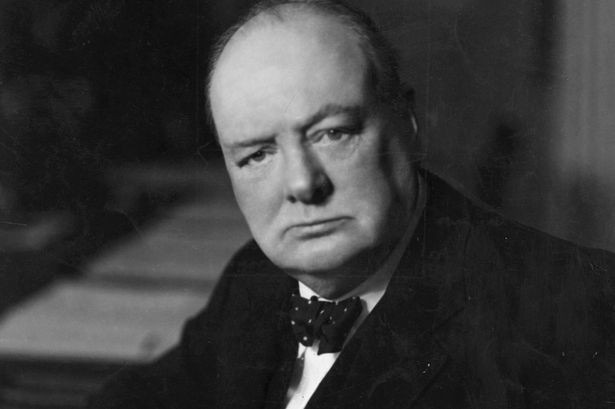Winston Churchill's Oratory Sounded like a Weary Drunk said Unimpressed Britons

Winston Churchill's soaring oratory was supposed to have raised the morale of the embattled British nation in the early years of World War Two but new research suggests the spine of the public wasn't exactly tingling when the wartime Prime Minister took to the microphone.
History professor Richard Toye claims the keynote addresses by Churchill during World War II were actually unpopular with swathes of Britons.
Toye, an expert on Churchill, moved to debunk the popular image of Britain's wartime prime minister as a source of inspiration against the grave threat of Adolf Hitler's Nazi Germany.
Toye's iconoclastic claim rest on sources like Mass Observation, which recorded contemporary reaction to Churchill's speeches, including 'finest hour,' 'the few,' and his 'blood, toil, tears and sweat' addresses.
The University of Exeter don said: "I was writing a book about the speeches and reviewed the evidence of the contemporary reaction and found it wasn't telling me the story I expected.
"Many people thought he was drunk during his famous 'finest hour' broadcast and there is little evidence that they made a decisive difference to the British people's will to fight."
Toye insisted a gap exists between the reputations of the speeches today and how they went down with contemporary audiences.
"There was not a blanket acceptance and positive reaction," said Toye. "This is possibly why the speeches didn't always have the effect now credited to them. The idea Churchill made a difference to inspiring people does not seem to be supported by the facts."
A Mass Observation report from the day after Churchill delivered his 'finest hour' broadcast in 1940, shows reaction to the speech was not unanimous.
It stated: "[Churchill's] delivery was frequently criticised. Some people suggested that he was drunk, others that he did not himself feel the confidence that he was proclaiming. A few thought he was tired. It would seem the delivery to some extent counteracted the contents of the speech."
The claims are unlikely to go down well with fans of Churchill, who voted him the best orator in history in a recent poll. His stirring words have gone down as perfectly pitched masterpieces of rousing rhetoric.
Soon after the start of Germany's western offensive in 1940, Churchill summed up how Britain would tackle the "grievous" conflict, by saying: "I have nothing to offer to blood, toil, tears and sweat."
He encapsulated the Royal Air Force's victory over the German Luftwaffe in the Battle of Britain in the autumn of 1940, with the phrase: "Never in the field of human conflict has so much been owed by so many, to so few."
When Britain was facing up to Adolf Hitler following the capture of France in the same year, Churchill framed looming hostilities as a heroic struggle to reach "bright, sunlit uplands."
"Let us therefore brace ourselves to our duties and so bear ourselves, that if the British Empire and its Commonwealth last for a thousand years, men will still say, this was their finest hour," he said.
Toye generously acknowledged Churchill was at least a credible speaker.
"When he kept going on about the war being long and bloody, people didn't like to hear it. But by summer 1944 when he said the war was close to over, people were more likely to believe him as he has not made false promises before."
'The Roar of the Lion: The Untold Story of Churchill's World War II Speeches,' by Richard Toye
© Copyright IBTimes 2024. All rights reserved.























